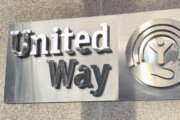MATTHEW PENNINGTON
Associated Press
WASHINGTON (AP) — North Korea’s government is engaging with other countries as it scrambles to combat growing international criticism against a human rights record that is challenging the authoritarian state’s legitimacy, a senior U.S. official said Friday.
Robert King, U.S. envoy on North Korean human rights issues, said it was encouraging that Pyongyang was becoming more engaged on the issue, but he still described it as a pariah state.
King said North Korea has faced “horrendous publicity” since a U.N. Commission of Inquiry concluded in February that the country had committed crimes against humanity. He urged the international community to keep up the pressure.
“The North Koreans are losing the battle. They’re recognizing it, and they’re becoming engaged. They are sending their foreign minister and others around the world to see if they can stop the damage,” King told a seminar at a Washington think tank.
The U.N. commission likened abuses in the isolated country to those of Nazi Germany. It accused the North of running political prison camps with up to 120,000 people and sponsoring abductions of South Koreans, Japanese and others.
In the months since the report came out, North Korea has pushed back, issuing its own upbeat self-assessment on its human rights record, and this week circulating a draft U.N. resolution in the same vein. It calls for “an end to the practice of calling into question the human rights situation of specific individual countries.”
That’s in response to a resolution being drafted by the European Union and Japan that encourages the Security Council to follow the commission’s recommendation to refer North Korea to the International Criminal Court. Even if the 193-member General Assembly approves the nonbinding resolution and the council takes it up, the referral is expected to fail because China would likely use its veto power as a permanent council member.
Still, North Korea’s human rights situation has received unprecedented attention, and its government demonstrated uncharacteristic candor last week when an official acknowledged to reporters at the U.N. the existence of its “reform through labor” camps. The official continued to deny the existence of a separate and more notorious network of political prison camps.
King noted some small, positive developments in Pyongyang’s attitude. He said the North had acceded to an international convention on people with disabilities in response to a suggestion in a periodic U.N. review of its rights situation.
“I think it’s helpful that they are becoming engaged,” King said.
Doug Anderson, general counsel to the U.S. House Foreign Affairs Committee, said, however, the progress was superficial. He said he’d be less skeptical if North Korea took an important step like allowing outside observers to visit the prison camps.
The North recently met with the top EU human rights official. King didn’t comment on the seemingly still slim chances of a comparable consultation with the U.S. King has only visited the country once since he was appointed envoy nearly five years ago.
North Korea views the U.S. as the driving force behind the U.N. commission. Relations are also strained over North’s nuclear program and its detention of three Americans.
King and Anderson were speaking at a seminar marking the 10th anniversary of U.S. legislation aimed at stiffening the American response to North Korea’s human rights abuses and accepting more refugees from the country.
Copyright 2014 The Associated Press. All rights reserved. This material may not be published, broadcast, rewritten or redistributed.







